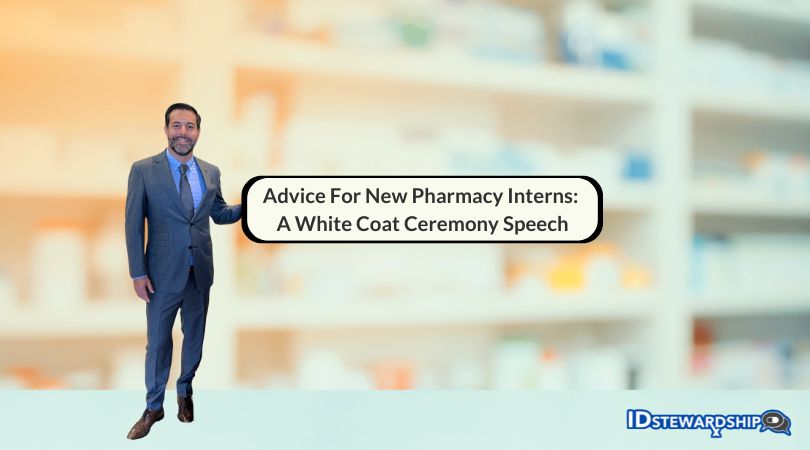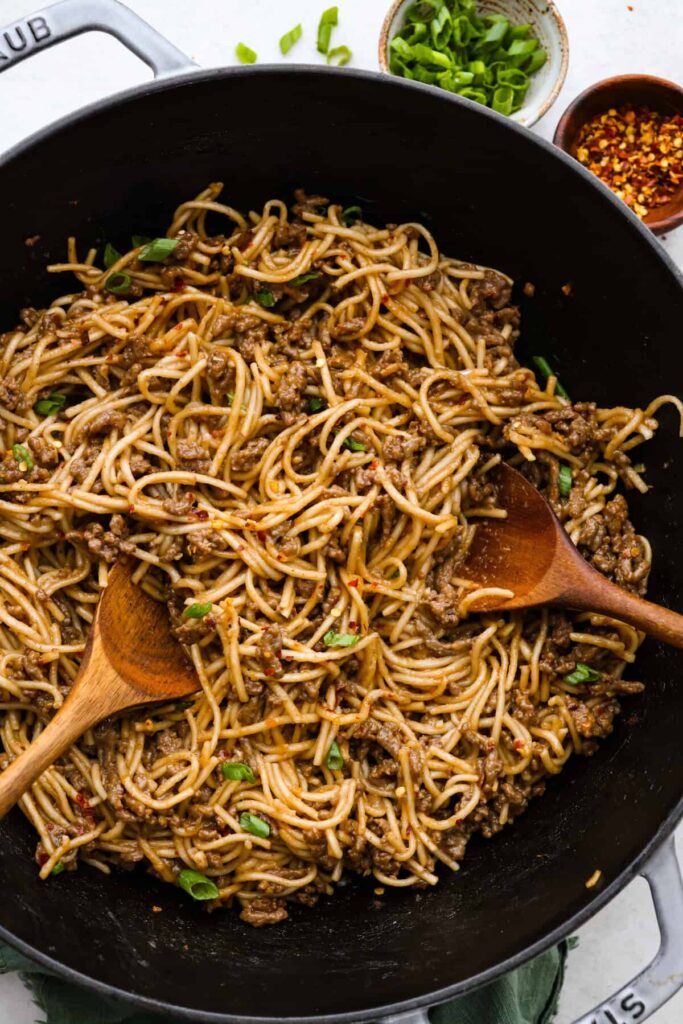

Authored by: Timothy P. Gauthier, Pharm.D., BCPS, BCIDP
Article Posted 30 September 2024
I recently had the honor to give a key note speech for my alma matter, Northeastern University in Boston, MA. It took me a while to put the thoughts together and I had some support from my friend Dr. Robert Kraljevich. It seems like other people might potentially benefit from reading this and learning from my 20 years of experience in the pharmacy biz… so I put it on this webpage!
If you know a pharmacy student who is getting their white coat or in the early years, please share this with them.
Here is some advice for pharmacy interns from my white coat key note…
“Thank you to the faculty and staff for the opportunity to be here today for this momentous occasion. It has been 20 years since I received my white coat in the Curry Student Center as a student at Northeastern University’s School of Pharmacy. I am truly honored to be a part of this event.
Today I am going to talk a little about the history of the white coat and attempt to relay advice which may help on your journey within the pharmacy profession.
The white coat ceremony is considered a relatively new ritual dating back to 1980s/90s for the medical and pharmacy worlds. It is a ceremony that marks transition from the student to professional. This may be seen as a “conversion” from lay person to member of the healthcare professional community.
Lab coats were first worn by scientists just prior to the 1900s. They were meant to protect the wearer from the substances within the laboratories. At that time physicians did not wear white coats but rather dressed more in the fashion of the day (e.g., black coat and pants, white shirt, vest, black hat). They would make house calls in this professional attire which was meant to inspire respect and trust from their patients and their care givers.
As the 1900s kicked off science became more legitimate and was in contrast to historical quackery. It was at this time that physicians also began to wear white laboratory coats, which was a more recognizable for the advancement of science and medicine. This in turn eventually led to white coat use in medicine and pharmacy. Pharmacists started wearing white coats more commonly in the 1950’s to reflect their professionalism.
The white coat signifies professionalism, caring and trust, which must be earned and cherished. The white coat ceremony “welcomes those embarking on their pharmacy careers to the community and gives them a standard against which they must measure their every act of care to the patients who trust them.”
Wearing this white coat brings much responsibility…
- Wear it with pride
- Wear it every day reminding yourself that your patient comes first and you will do all that you can to provide the best care for them
- Wear it and remember you are not only representing yourself, but the profession of pharmacy and your University at all stages of your training
- And finally wear it, as a symbol of your accomplishment to be granted access into the profession
As you go through the next few years of training and eventually enter pharmacy practice, you will become a part of our community. How will you integrate into this new role you will take on?
There is a game from the world of cinema that is called “six degrees of Kevin Bacon”, where actors and actresses are assigned with a “Bacon Number”. This is the number of degrees of separation they have from actor Kevin Bacon, who is most famous from movies such as A Few Good Men, Tremors, and Footloose – he has been in over 60 movies to date. The premise is that every actor who has been on screen is at least 6 film castings away from Kevin Bacon, and the degrees needed to find a connection to Kevin Bacon is their Bacon Number. There is even a website called “The Oracle of Bacon” that will help you calculate a “Bacon Number”. For example, Dwayne “The Rock” Johnson has a Bacon Number of 2. The Rock was in Red Notice with Daniel Bernhardt who was in The Guardians of the Galaxy Holiday Special with Kevin Bacon. Another example, Blake Lively, she was in the Town with John Franchi who as in Patriots Day with Kevin Bacon, so Blake’s Bacon Number is also 2.
As a member of the pharmacy community, you will become connected to an amazing network. The degrees of separation between you and others in the community will often be just 1 or 2 people. Recognize that the relationships you develop are going to be critical to your future successes, including for project collaboration and for developing job opportunities. More often than you may expect, the best jobs in pharmacy arise from conversations between colleagues and are not necessarily posted on job boards. In turn, a common piece of advice for pharmacy students is to treat every day as if it were an interview. Perhaps there will be a Kevin Bacon that you want to work with and the person working alongside you will be the Daniel Bernhardt or John Franchi who can give you a glowing recommendation and help make an introduction.
I also hope that you will take ownership of your professional development and advocate for yourself. Talk to your preceptors, mentors, and peers about their experiences. Ask them about how they found success and what they would do differently if they were in your shoes today. Seek to determine what will make you happy as a future pharmacist. This means taking the time to identify what you do or do not like. Myself for example, I really do not enjoy cardiology, but I would be happy to talk to you about antibiotics for hours on end. If you have an area of interest (such as infectious diseases, wink, wink), do not hesitate to make others aware and seek out opportunities to advance yourself or learn more about the area.
In the 20 years since I was in your shoes much has changed. In particular technology and social networks online have become significantly more engrained within the fabric of our society. Given my experience promoting the profession of pharmacy online and through social media, I thought it relevant to also provide advice on this front. This topic alone could easily be a whole hour lecture, so I am just going to give you 5 key rules to think about.
First rule – If you would not say it to your grandmother, then do not say it on social media.
Second rule – A rising tide lifts all boats. Celebrate the successes of your colleagues and friends on social media.
Third rule – Do not engage with trolls and avoid public arguments. Nothing good comes from it.
Fourth rule – If you are not sure if it is okay to post, do not post it. Trust your gut if you are second guessing something.
Fifth rule – Control your social media, do not let your social media control you. These platforms are designed to manipulate you as a user or content creator. Be conscious about how often you use it, which alerts you allow it send you, and make sure you are setting the rules (even if they keep changing your notification settings without telling you).
To close out I would like to mention a self-reflection I had that you may relate to. As a pharmacy student I was very intimidated by my super smart classmates and brilliant professors. It was generally overwhelming to be in a new city as a young adult left to my own devices. One of the best decisions I made to help my college experience was to join a club. For me it was being a founding member of Beta Chi, the local chapter of the Phi Delta Chi professional pharmacy fraternity. I got a lot out of being a member of the group, including gaining life lessons from my peers. For example, one of my “brothers” once said something that lives with me to this day. We were talking about having a health fair. He said “Think big, then think bigger, then zoom out and think really big. Now you are on the right track.” It aligns with the old saying “shoot for the moon and you will land amongst the stars.”
You may not be aware, but some of the best infectious diseases pharmacists in the world attended Northeastern University School of Pharmacy. Dr. Mike Rybak has a lab and fellowship program at Wayne State University, he is a guru of vancomycin and pharmacokinetics. He graduated Northeastern in 1976. Dr. Libby Dodds Ashley runs the Duke Antimicrobial Stewardship Outreach Network and has served on the Presidential Advisory Council on Combating Antibiotic Resistant Bacteria. She is an extraordinary person. She graduated Northeastern in 1998. These are folks that had big dreams and have done amazing work in the pharmacy profession.
Believe in yourself. Dream big dreams. Develop your professional network. Seek out opportunities to advance your skills and knowledge. As you don your new white coat, know that you have a bright future ahead of you and are capable of achieving great things.”
RECOMMENDED TO YOU










drt421